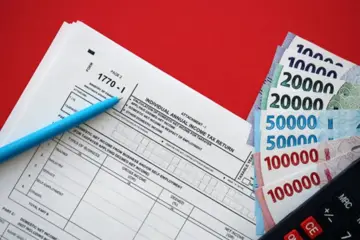Complete guidance on regulations and rules of Payroll Indonesia
As the economy grows and foreign businesses increasingly invest in Indonesia, understanding payroll Indonesia is paramount. From determining local minimum wages to handling social contributions and tax obligations, compliance with these regulations is not only a legal requirement but also a crucial factor in a business's success. Let's explore these important regulations and rules in-depth in the following article
What is Payroll?
Payroll is the process of compensating employees for their work within a specific period, typically on a regular schedule such as weekly, bi-weekly, or monthly. It encompasses calculating wages, salaries, bonuses, and deductions, and disbursing payments to employees either through direct deposit to their bank accounts or by issuing physical checks. Additionally, payroll involves tasks such as tracking hours worked, calculating taxes and other withholdings, and ensuring compliance with labor laws and regulations. In essence, payroll is the financial aspect of managing a company's workforce, ensuring employees are fairly compensated for their time and contributions.
>>> See more: Indonesia employment law

Payroll is the process of systematically calculating and disbursing wages or salaries to employees
Overview of Payroll Indonesia
Understanding these aspects of the Payroll Indonesia system is crucial for employees and business owners operating in this country to ensure smooth operations, legal compliance, and employee satisfaction. It involves:
- Payroll Indonesia cycle: Monthly with a 13th salary paid on Tunjangan Hari Raya, prorated for employees with less than a year of service.
- Employer taxes: Range from 10.24% to 11.74%.
- Minimum wage: Governed by local regulations, ranging from IDR 1,958,169 to IDR 5,067,381 per month.
- Working hours: 8 hours a day, 5 days a week, or 7 hours a day, 6 days a week.
 Adhere to Payroll Indonesia to manage the workforce in the labor market
Adhere to Payroll Indonesia to manage the workforce in the labor market
Why are regulations and rules in Payroll Indonesia important?
Understanding and complying with regulations and rules in Payroll Indonesia is crucial for both employees and recruiters. It ensures legal compliance with labor laws, and fair compensation for employees, enhances employee satisfaction, and builds trust and credibility within the organization and the broader community.
-
Legal compliance: Adhering to payroll regulations ensures compliance with Indonesian labor laws, avoiding potential legal penalties, fines or litigation.
-
Fair compensation: Compliance with regulations guarantees that employees receive fair and accurate compensation, including minimum wage requirements, overtime pay and benefits entitlements.
-
Employee satisfaction: Timely and accurate payroll processing contributes to employee satisfaction and morale, fostering trust and confidence in the organization.
-
Reputation and trust: Demonstrating compliance enhances the organization's reputation and builds trust among employees, stakeholders and the community.
-
Recruitment and retention: Knowledge of payroll regulations attracts top talent to the organization, as prospective employees prefer companies committed to fair and transparent payroll practices. Additionally, accurate payroll processing contributes to employee retention by creating a positive work environment.
Therefore, understanding and complying with regulations and rules in Payroll Indonesia are essential for maintaining legal compliance, fostering employee satisfaction, and building trust and credibility within the organization and the broader community.

Payroll Indonesia rules and regulations are important for recruitment and retention
The difference between Payroll, Salary and Wages
To better understand Payroll, Salary, and Wages, you need to grasp the characteristics of each. Payroll Indonesia encompasses the entire process of managing employee compensation, Salary is a fixed payment to an employee over a specific period, and Wages refer to payment for hourly work, which may vary based on actual working hours.
Payroll
-
Payroll refers to the entire process of managing employee compensation and benefits within an organization.
-
It involves calculating wages or salaries, deducting taxes and other withholdings, and issuing payments to employees.
-
Payroll also includes management tasks such as tracking working hours, calculating earnings, and distributing paychecks.
>>> See more: Payroll Services - 10 Best Payroll Outsourcing Companies
Salary
-
Salary is a fixed amount paid to an employee over a specific period, usually monthly or weekly.
-
Employees receiving a salary are paid a fixed amount per pay period, regardless of their actual working hours.
Wages
-
Wages typically refer to the payment for hourly work.
-
The amount of wages earned by an employee depends on the actual hours worked within a pay period.
-
Wages may vary based on the number of hours worked, and employees often receive additional pay for overtime or exceeding standard working hours.
Here's a concise and easy-to-understand comparison table focusing on the main differences between Payroll, Salary and Wages:
| Aspect | Payroll | Salary | Wages |
| Definition | The process of managing employee compensation, including calculating payments, deductions, and issuing paychecks. | A fixed amount is paid to employees regularly, usually monthly or bi-weekly. | Compensation for hourly work, with pay directly tied to the number of hours worked. |
| Payment Type | Represents the entire employee compensation process. | Fixed predetermined amounts paid regularly regardless of hours worked. | Compensation is based on the number of hours worked, varying with actual work hours. |
| Frequency | Ongoing administrative process. | Regular, often monthly or bi-weekly payments. | Hourly, paid for each hour worked. |
| Calculation | Involves determining gross pay, deducting taxes and other deductions, and issuing payments. | The fixed amount is determined before work begins. | Based on the number of hours worked, multiplied by an hourly rate. |
While Payroll, Salary, and Wages have distinct definitions and applications, they all relate to compensating employees for their work and require careful financial management.
>>> See more: Average salary in Indonesia
Regulations of Payroll Indonesia
In Indonesia, like many other countries, adhering to payroll regulations is crucial for businesses to ensure legal compliance, foster employee satisfaction, and build trust within the organization and the wider community. Understanding the intricacies of Payroll Indonesia is essential for employers to navigate smoothly through various aspects of compensation and taxation.

Payroll Indonesia includes minimum wage, contributions, taxes, bonuses, and severance pays
Minimum Wage
The minimum wage requirement in Payroll Indonesia varies across regions and is set by local government regulations. The monthly rate ranges from 2,036,947 IDR to 5,067,381 IDR, with variations based on location and economic factors.
Contributions
Employers and employees in Payroll Indonesia are required to make contributions to various social security programs, including work accident (JKK), old age benefit (JHT), death/life insurance (JKM), pension (JP), and health insurance (BPJS). The total contribution rates for employers range from 10.24% to 11.74%, while employees contribute 2.00% to their social security programs.
Taxes
Income tax rates in Payroll Indonesia vary based on income levels, with different tax brackets ranging from 0% to 34%. Employers are responsible for withholding and remitting employee income taxes to the Indonesian Tax Office, with rates determined by the monthly earnings of employees.
Holiday bonus
In Indonesia, the Tunjangan Hari Raya (THR) is a significant holiday bonus mandated by labor laws. It's an integral part of the country's culture and tradition, paid out before major religious holidays like Hari Raya Idul Fitri (for Muslims) and Christmas (for others). Typically equivalent to a month's basic salary, the THR also includes fixed monthly allowances. While mandatory, its specifics can vary based on employment agreements and company policies.
Working Hours and Overtime bonus
Standard working hours in Indonesia are 40 hours per week, with variations for employees working six or five days a week. Overtime work is compensated at rates ranging from 150.00% to 400.00% of the regular hourly wage, depending on the circumstances and duration of overtime.
Leave Entitlements/Retirement pay
Employees in Indonesia are entitled to paid annual leave, public holidays, sick days, maternity leave and paternity leave. Annual leave typically starts at 12 days per year and increases with years of service. Maternity leave is fully paid for three months, while paternity leave lasts for two days. The amount of retirement pay a person receives often depends on factors such as their length of service, salary history, and the specific provisions of the pension scheme they are enrolled in.
Severance pay for Termination Procedures
Employers must follow specific procedures when terminating employees, including providing written explanations for termination reasons and adhering to notice periods. Severance pay is mandatory and determined by the length of an employee's service.

Severance payments are mandatory upon meeting certain termination conditions during employment
In addition to statutory benefits, employers may offer common benefits such as meal allowances, commuting expenses, gym memberships, and internet coverage to employees as part of their compensation package.
>>> See more: How to set up a PT company in Indonesia
Payroll Indonesia processing procedures
By following the below 3 steps, organizations can effectively manage their Payroll Indonesia processes, ensuring compliance, accuracy, and efficiency.
Pre-Payroll preparation
During this phase, several crucial tasks are undertaken to ensure a smooth Payroll Indonesia process:
-
Defining payroll policies: Establishing policies covering aspects like pay, attendance, leave, and benefits, which must be approved by management.
-
Gathering inputs: Collecting essential data from various departments, including HR, finance, and general services, to ensure accurate payroll calculations.
-
Validating inputs: Verifying the accuracy and completeness of the collected data to prevent errors during payroll processing
Payroll calculation
This stage involves the actual computation of employee salaries based on the gathered data:
-
Inputting data: Entering verified employee data into the payroll system for accurate calculation of net pay, considering taxes, deductions, and other relevant factors.
-
Utilizing payroll systems: Employing payroll software to automate calculations and streamline processes, minimizing errors and increasing efficiency.
Post-Payroll activities
Following payroll calculation, certain activities are performed to wrap up the process effectively:
-
Ensuring statutory compliance: Adhering to legal requirements by deducting and remitting statutory contributions such as EPF, TDS and ESI on time.
-
Accounting for payroll: Recording payroll-related transactions in the accounting or ERP system to maintain accurate financial records.
-
Disbursing payments: Making salary payments through appropriate channels, such as cash, cheques, or bank transfers, ensuring timely and accurate disbursement.
-
Generating reports: Producing comprehensive reports detailing Payroll Indonesia expenses and other relevant metrics for analysis and decision-making purposes.

Payroll Indonesia is calculated and processed meticulously
How to set up a Payroll Indonesia system?
Establishing a Payroll Indonesia system involves navigating a series of crucial steps to ensure legal compliance and efficient financial management. Below are the key steps to effectively set up payroll operations in Indonesia:
- Step 1: Government registration: Register with the Ministry of Manpower (MOM) and the Social Security Administration (BPJS) to initiate official operations. These registrations are mandatory prerequisites before commencing any Payroll Indonesia activities.
- Step 2: Tax identification acquisition: Obtain tax identification numbers for both employees and the company by registering with the tax office. Submission of legal documents and an employee roster is typically required for this process.
- Step 3: Salary and benefits structuring: Determine employee salaries in adherence to Indonesia's varying regional minimum wage regulations. Additionally, establish benefits such as health insurance, pension plans, and other statutory entitlements mandated by law.
- Step 4: Selection of Payroll Indonesia service provider: Opting for a reputable payroll service provider can streamline processes, save costs, and ensure compliance with Indonesian payroll laws. Choose a provider with a solid track record in Payroll Indonesia management.
- Step 5: Payroll Indonesia processing: Once all necessary registrations are complete, salaries and benefits are established, and a provider is selected, commence payroll processing. This involves tax calculation, benefits administration, pay slip issuance, and regulatory compliance.
- Step 6: Submission of Payroll Indonesia reports: Regularly submit accurate monthly and annual payroll reports to the authorities. A reliable payroll provider can handle this responsibility, ensuring timely and precise submissions in adherence to Indonesian regulations.
Given the complexities of Payroll Indonesia regulations, seeking professional guidance or outsourcing payroll operations to specialized firms like OS HRS is advisable to guarantee seamless compliance and efficient payroll management. Proactively update information regularly on Payroll Indonesia laws to avoid penalties and ensure smooth payroll operations.
 Establishing a Payroll Indonesia system to manage efficiently business financial
Establishing a Payroll Indonesia system to manage efficiently business financial
Payroll Indonesia and regulations are not only crucial factors in building a sustainable business foundation and developing employees. Aniday can support businesses in Indonesia in sourcing, attracting, and managing personnel, an integral part of the Payroll process. Aniday is ready to assist businesses in human resource management by providing headhunter Indonesia services and finding suitable employees!
Aniday's HR Services
Headhunting Service
Find and recruit quality candidates in just 1 week! Supported by 40,000 experienced headhunters in IT, Finance, Marketing… capable of recruiting in any region.
Headhunting Service ➔Employer of Record (EOR) Service
On behalf of your business, we recruit employees and handle payroll without the need to establish a company in markets such as Vietnam, Singapore, Malaysia, India, Indonesia…
Employer of Record (EOR) Service ➔